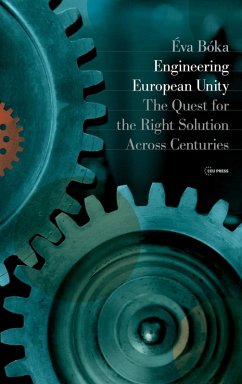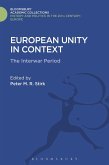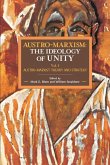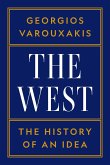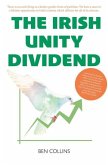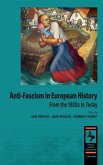- Gebundenes Buch
- Merkliste
- Auf die Merkliste
- Bewerten Bewerten
- Teilen
- Produkt teilen
- Produkterinnerung
- Produkterinnerung
à va B?ka surveys historical attempts at European supranational governance from the Middle Ages through the Lisbon Treaty (2007), focusing on 19th and 20th-century organizational models to identify which European and non-European ideas facilitated unity versus those that led to deadlocks in state cooperation.
Andere Kunden interessierten sich auch für
![European Unity in Context European Unity in Context]() European Unity in Context135,99 €
European Unity in Context135,99 €![The Granddaughter The Granddaughter]() Bernhard SchlinkThe Granddaughter12,99 €
Bernhard SchlinkThe Granddaughter12,99 €![Austro-Marxism: The Ideology of Unity Austro-Marxism: The Ideology of Unity]() Austro-Marxism: The Ideology of Unity49,99 €
Austro-Marxism: The Ideology of Unity49,99 €![The West The West]() Georgios VarouxakisThe West33,99 €
Georgios VarouxakisThe West33,99 €![Irish Unity Dividend Irish Unity Dividend]() Ben CollinsIrish Unity Dividend16,99 €
Ben CollinsIrish Unity Dividend16,99 €![Anti-Fascism in European History Anti-Fascism in European History]() Anti-Fascism in European History108,99 €
Anti-Fascism in European History108,99 €![Facets of Unity Facets of Unity]() A. H. AlmaasFacets of Unity22,99 €
A. H. AlmaasFacets of Unity22,99 €-
-
-
à va B?ka surveys historical attempts at European supranational governance from the Middle Ages through the Lisbon Treaty (2007), focusing on 19th and 20th-century organizational models to identify which European and non-European ideas facilitated unity versus those that led to deadlocks in state cooperation.
Produktdetails
- Produktdetails
- Verlag: Central European University Press
- Seitenzahl: 254
- Erscheinungstermin: 27. Dezember 2022
- Englisch
- Abmessung: 235mm x 157mm x 18mm
- Gewicht: 526g
- ISBN-13: 9789633865989
- ISBN-10: 9633865980
- Artikelnr.: 64983719
- Herstellerkennzeichnung
- Libri GmbH
- Europaallee 1
- 36244 Bad Hersfeld
- gpsr@libri.de
- Verlag: Central European University Press
- Seitenzahl: 254
- Erscheinungstermin: 27. Dezember 2022
- Englisch
- Abmessung: 235mm x 157mm x 18mm
- Gewicht: 526g
- ISBN-13: 9789633865989
- ISBN-10: 9633865980
- Artikelnr.: 64983719
- Herstellerkennzeichnung
- Libri GmbH
- Europaallee 1
- 36244 Bad Hersfeld
- gpsr@libri.de
Éva Bóka, PhD, Dr Habil, is researcher in history. She was lecturer at Corvinus University, Budapest, Hungary, and at Eötvös Loránd University, Budapest, Hungary. Her researches, publications, and courses cover four major fields: 1. The history of early-modern European diplomacy and the relationship of Europe with the Ottoman Empire; 2. Central European and Hungarian political thinkers on the democratization of the states and international relations; 3. The history of the idea of European unity, the history of European integration and the history of Europe's (EU's) relations with the world. 4. Modernization (democratization) of the states and the international relations in the Western World and East Asia (the United States, Europe (EU), China, Japan, and South Korea). She is the author of several books and articles on the history of Europe and the Ottoman Empire; the idea of European unity; the history of the European integration policy; and Europe's (EU's) relations with the world.
Preface
Introduction: The Idea of European Unity
the Western System of Liberties
and the Dichotomy of Federalism versus Intergovernmentalism
1 The Most Important Achievements of the Idea of European Unity in the Field of State and International Organization before the Declaration of the Rights of Man and of the Citizen (1789)
2 A New Democratic Constitutional Federal State in Opposition to Feudalism and Colonization: The Constitution of the United States of America (1787) and Its Influence in Europe
3 The Dilemma of Democratization of the Idea of European Unity (1789-1815)
4 The European Phenomenon of Nation State and National Empire
and the Chances of a European Federation (1815-1919)
5 The Crisis of Realization of the Western System of Liberties and the Idea of European Unity between the Two World Wars
6 Fight for a Democratic Europe
7 In Search of a New Europe: Three Alternatives
8 Realizing the Idea of European Unity in the Framework of the Council of Europe
9 Shaping the Supranational European Union
10 Outlook: Future Paths and Perspectives
11 The World and Europe (EU): Some Responses to the Challenge of European Modernity
12 Concluding Thoughts
Bibliography
About the Author
Index
Introduction: The Idea of European Unity
the Western System of Liberties
and the Dichotomy of Federalism versus Intergovernmentalism
1 The Most Important Achievements of the Idea of European Unity in the Field of State and International Organization before the Declaration of the Rights of Man and of the Citizen (1789)
2 A New Democratic Constitutional Federal State in Opposition to Feudalism and Colonization: The Constitution of the United States of America (1787) and Its Influence in Europe
3 The Dilemma of Democratization of the Idea of European Unity (1789-1815)
4 The European Phenomenon of Nation State and National Empire
and the Chances of a European Federation (1815-1919)
5 The Crisis of Realization of the Western System of Liberties and the Idea of European Unity between the Two World Wars
6 Fight for a Democratic Europe
7 In Search of a New Europe: Three Alternatives
8 Realizing the Idea of European Unity in the Framework of the Council of Europe
9 Shaping the Supranational European Union
10 Outlook: Future Paths and Perspectives
11 The World and Europe (EU): Some Responses to the Challenge of European Modernity
12 Concluding Thoughts
Bibliography
About the Author
Index
Preface
Introduction: The Idea of European Unity
the Western System of Liberties
and the Dichotomy of Federalism versus Intergovernmentalism
1 The Most Important Achievements of the Idea of European Unity in the Field of State and International Organization before the Declaration of the Rights of Man and of the Citizen (1789)
2 A New Democratic Constitutional Federal State in Opposition to Feudalism and Colonization: The Constitution of the United States of America (1787) and Its Influence in Europe
3 The Dilemma of Democratization of the Idea of European Unity (1789-1815)
4 The European Phenomenon of Nation State and National Empire
and the Chances of a European Federation (1815-1919)
5 The Crisis of Realization of the Western System of Liberties and the Idea of European Unity between the Two World Wars
6 Fight for a Democratic Europe
7 In Search of a New Europe: Three Alternatives
8 Realizing the Idea of European Unity in the Framework of the Council of Europe
9 Shaping the Supranational European Union
10 Outlook: Future Paths and Perspectives
11 The World and Europe (EU): Some Responses to the Challenge of European Modernity
12 Concluding Thoughts
Bibliography
About the Author
Index
Introduction: The Idea of European Unity
the Western System of Liberties
and the Dichotomy of Federalism versus Intergovernmentalism
1 The Most Important Achievements of the Idea of European Unity in the Field of State and International Organization before the Declaration of the Rights of Man and of the Citizen (1789)
2 A New Democratic Constitutional Federal State in Opposition to Feudalism and Colonization: The Constitution of the United States of America (1787) and Its Influence in Europe
3 The Dilemma of Democratization of the Idea of European Unity (1789-1815)
4 The European Phenomenon of Nation State and National Empire
and the Chances of a European Federation (1815-1919)
5 The Crisis of Realization of the Western System of Liberties and the Idea of European Unity between the Two World Wars
6 Fight for a Democratic Europe
7 In Search of a New Europe: Three Alternatives
8 Realizing the Idea of European Unity in the Framework of the Council of Europe
9 Shaping the Supranational European Union
10 Outlook: Future Paths and Perspectives
11 The World and Europe (EU): Some Responses to the Challenge of European Modernity
12 Concluding Thoughts
Bibliography
About the Author
Index

